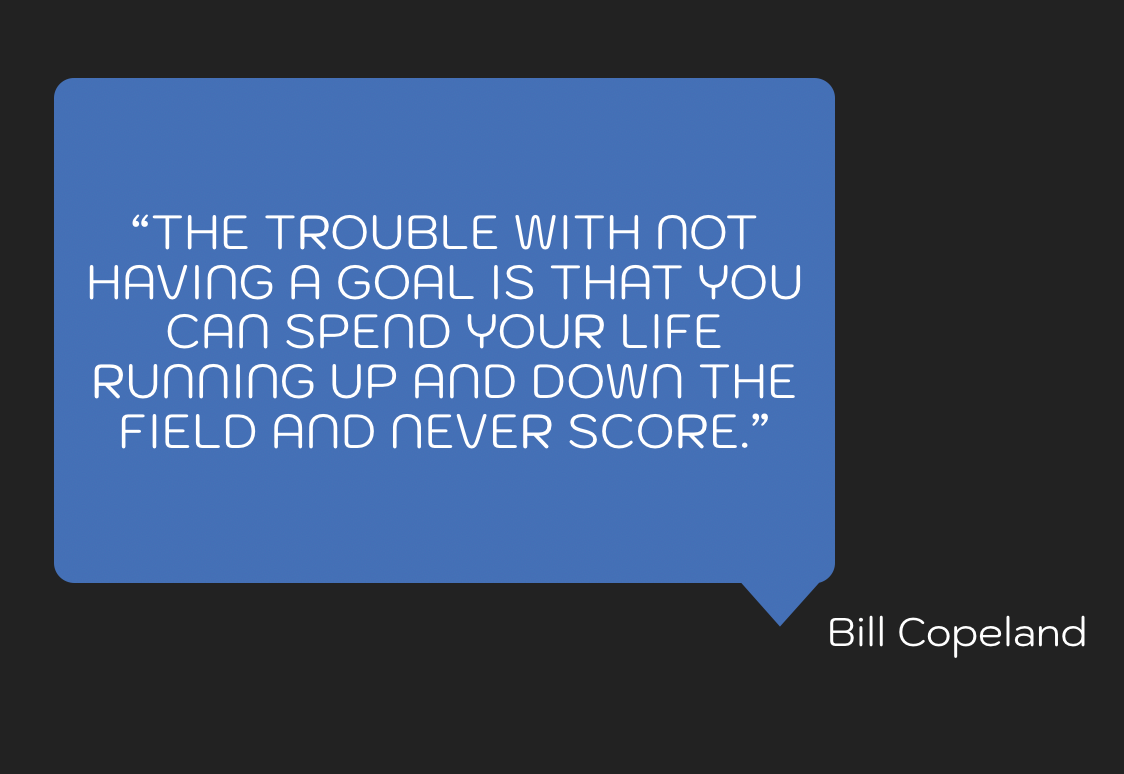How to Set Meaningful Goals
Are there key characteristics we should include to set goals that are motivating? Will these same principles help us stick to them longer?

As we start a new decade, many of us are creating new goals. For the year ahead, for the next decade, or perhaps for a more open-ended timeframe. We will meet some of our goals with ease. Causing us to question whether they should count as accomplishments. Other goals may seem so difficult and time consuming - somewhere along the way we decide to suspend our attempt. So how do we generate goals that are ‘just right’? Not too easy ... but hard enough to help us grow. Goals that motivate us to continue putting forth the effort to achieve them.
With a bit of research into goal setting, you'll discover many methods and suggested guidelines for defining goals. In ensuring that goals have key characteristics, we increase their motivating potential. Becoming more likely to achieve outcome(s). Let’s take a closer look at the characteristics for two of the most popular methodologies.
Five Principles of Effective Goal Setting
By Edwin Locke and Gary Latham. (Published in the book “A Theory of Goal Setting & Task Performance”, 1990.)
1) CLARITY
The goal must be clearly defined, specific in nature, and easy to understand.
2) CHALLENGE
The goal must present a reasonable form of challenge. Goals that are too simplistic or tedious are likely to de-motivate.
3) COMMITMENT
There must be a level of commitment in achieving the goal. Without this, the vision is simply an idea.
4) FEEDBACK
It is important to have a mechanism in place for assessing progress. This can be external feedback points, or internal checks to measure movement towards the goal.
5) TASK COMPLEXITY
The goal should not be overwhelming or confusing. Try to maintain an adequate level of complexity. Establishing timelines and milestones are key considerations for large and complex goals.
SMART Goals
By George T. Dohran. "There's a S.M.A.R.T. way to write management's goals and objectives". (Management Review. 1981. 70(11): 35–36.)
Specific
A goal should be explicit. You should be able to communicate the goal to others in a way that is clear and well defined.
Measurable
We should have the ability to measure the progress and achievement of the goal. Creating something ambiguous with no defined elements to assess, is difficult to accomplish.
Achievable
The goal should be something that, with effort, one can meet the defined outcome. It should not be an impossible task.
Realistic
A goal should be workable and relevant to your purpose. It should be set at a meaningful level. Not too easy, but also not too difficult.
Timely
A goal requires a defined timeline. Having a start date and target completion date defined will assist in creating a sense of urgency. Without this, you run the risk of not feeling motivated.
Keys for Motivation
Goal setting is done to motivate yourself and/or others to take action. They will help set up the elements you need to accomplish great things. Whether you choose to follow one of the methodologies above or another one is up to you. To create goals that are motivating, make sure the following elements are present.
DIRECTION - An understanding of the path that will take you from where you are, to where you want to be.
INTENSITY - An understanding of how much energy you must spend to move towards the outcome desired.
DURATION - An understanding of urgency or timing associated with reaching the goal.
Are you ready to set some goals towards achieving greatness?


